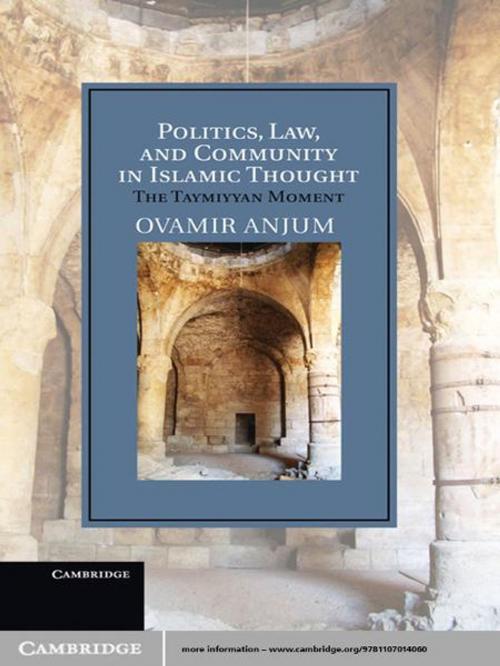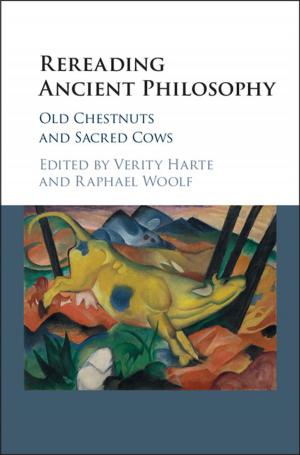Politics, Law, and Community in Islamic Thought
The Taymiyyan Moment
Nonfiction, History, Middle East, Religion & Spirituality| Author: | Professor Ovamir Anjum | ISBN: | 9781139334327 |
| Publisher: | Cambridge University Press | Publication: | March 19, 2012 |
| Imprint: | Cambridge University Press | Language: | English |
| Author: | Professor Ovamir Anjum |
| ISBN: | 9781139334327 |
| Publisher: | Cambridge University Press |
| Publication: | March 19, 2012 |
| Imprint: | Cambridge University Press |
| Language: | English |
This revisionist account of the history of Islamic political thought from the early to the late medieval period focuses on Ibn Taymiyya, one of the most brilliant theologians of his day. This original study demonstrates how his influence shed new light on the entire trajectory of Islamic political thought. Although he did not reject the Caliphate ideal, as is commonly believed, he nevertheless radically redefined it by turning it into a rational political institution intended to serve the community (umma). Through creative reinterpretation, he deployed the Qur'anic concept of fitra (divinely endowed human nature) to centre the community of believers and its common-sense reading of revelation as the highest epistemic authority. In this way, he subverted the elitism that had become ensconced in classical theological, legal and spiritual doctrines, and tried to revive the ethico-political, rather than strictly legal, dimension of Islam. In reassessing Ibn Taymiyya's work, this book marks a major departure from traditional interpretations of medieval Islamic thought.
This revisionist account of the history of Islamic political thought from the early to the late medieval period focuses on Ibn Taymiyya, one of the most brilliant theologians of his day. This original study demonstrates how his influence shed new light on the entire trajectory of Islamic political thought. Although he did not reject the Caliphate ideal, as is commonly believed, he nevertheless radically redefined it by turning it into a rational political institution intended to serve the community (umma). Through creative reinterpretation, he deployed the Qur'anic concept of fitra (divinely endowed human nature) to centre the community of believers and its common-sense reading of revelation as the highest epistemic authority. In this way, he subverted the elitism that had become ensconced in classical theological, legal and spiritual doctrines, and tried to revive the ethico-political, rather than strictly legal, dimension of Islam. In reassessing Ibn Taymiyya's work, this book marks a major departure from traditional interpretations of medieval Islamic thought.















